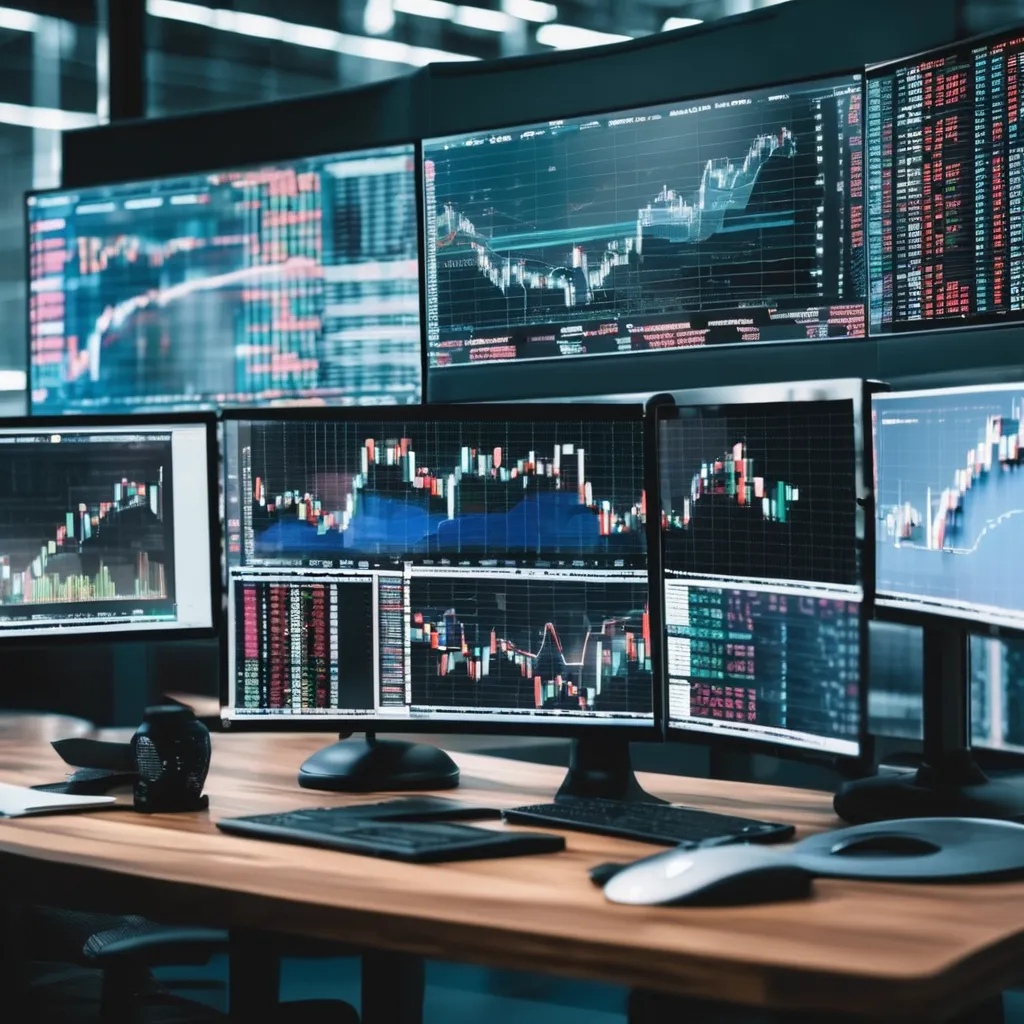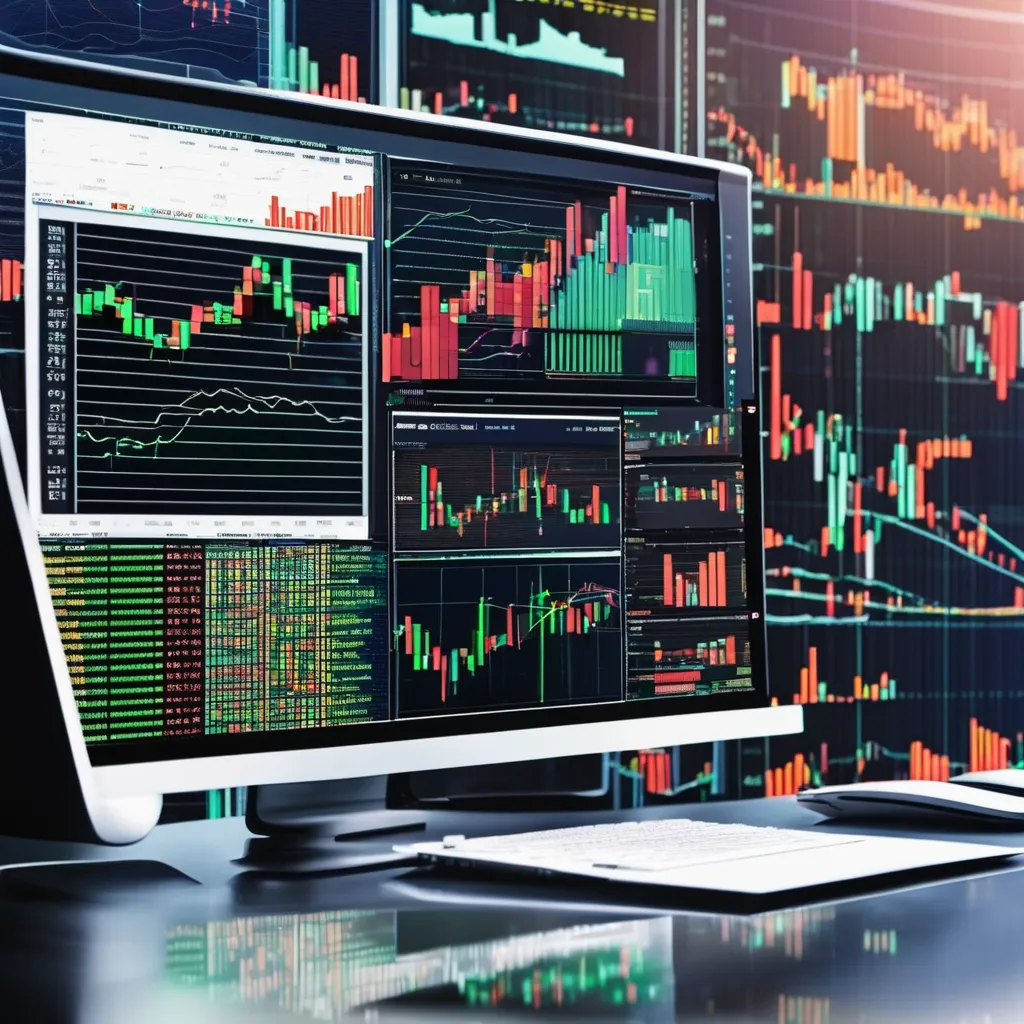The intersection of machine learning, cloud computing, and stock trading has given rise to a new era in the financial industry.
The ability to deploy machine learning model stock trading cloud solutions has opened up unprecedented opportunities for traders, investors, and financial institutions. This article explores the intricacies of this technology, how it works, and why it’s becoming an essential tool in modern finance.
We will also delve into its advantages, potential challenges, and the future of stock trading in the cloud.
Understanding the Machine Learning Model Stock Trading Cloud

Machine learning model stock trading cloud refers to the use of machine learning algorithms hosted on cloud platforms to analyze and predict stock market movements.
These models leverage vast amounts of historical and real-time data to make informed trading decisions.
Cloud computing plays a critical role by providing the computational power and storage capacity needed to process large datasets and run complex models efficiently.
How Machine Learning Transforms Stock Trading
Machine learning has the potential to transform stock trading by enabling more accurate predictions and automating trading strategies. Here’s how:
- Data Analysis and Pattern Recognition:
Machine learning models are capable of analyzing vast amounts of data, including historical prices, trading volumes, economic indicators, and even news articles.
These models can identify patterns and trends that human traders might miss, leading to more informed trading decisions.
- Predictive Modeling:
Predictive models in stock trading use historical data to forecast future price movements. By training these models on large datasets, they can learn the relationships between different variables and predict how stock prices will change in the future.
The machine learning model stock trading cloud can execute these predictions in real-time, giving traders a competitive edge.
- Automated Trading:
Algorithmic trading, powered by machine learning, allows for the automation of trading strategies. Once a machine learning model identifies a trading opportunity, it can automatically execute trades based on predefined criteria.
This reduces the need for human intervention and allows for faster execution of trades.
- Risk Management:
Machine learning models can assess the risk associated with different trading strategies. By analyzing market volatility and historical performance, these models can help traders and investors mitigate risks and make more informed decisions.
The Role of Cloud Computing

Cloud computing is an essential component of the machine learning model stock trading cloud. It offers several advantages:
- Scalability:
Cloud platforms provide virtually unlimited computational power and storage, allowing traders to scale their machine learning models as needed. This is particularly important for large financial institutions that need to process massive datasets and run multiple models simultaneously.
- Accessibility:
By hosting machine learning models in the cloud, traders and analysts can access them from anywhere in the world. This global accessibility ensures that trading strategies can be executed in real-time, regardless of the trader’s location.
- Cost Efficiency:
Cloud computing eliminates the need for expensive on-premises hardware and infrastructure. Traders can pay for only the resources they use, making it a cost-effective solution for both individual traders and large institutions.
- Flexibility:
Cloud platforms offer a wide range of tools and services that can be integrated with machine learning models. This flexibility allows traders to customize their models, incorporate new data sources, and adapt to changing market conditions.
Benefits of Using Machine Learning Models in Stock Trading

- Enhanced Accuracy:
Machine learning models can analyze complex datasets and identify patterns that are not immediately apparent to human traders. This leads to more accurate predictions and better trading outcomes.
- Speed and Efficiency:
The machine learning model stock trading cloud can process and analyze data in real-time, allowing for faster decision-making and trade execution. This speed is crucial in the fast-paced world of stock trading.
- Reduced Human Error:
By automating trading strategies, machine learning models reduce the risk of human error. This leads to more consistent performance and minimizes the impact of emotional or irrational decision-making.
- Customization:
Traders can customize their machine learning models to align with their specific trading strategies and risk tolerance. This level of customization allows for more personalized and effective trading solutions.
- Risk Mitigation:
Machine learning models can assess and manage risks more effectively than traditional methods. By analyzing historical data and market conditions, these models can help traders avoid potentially costly mistakes.
- Competitive Advantage:
Traders who leverage machine learning model stock trading cloud solutions gain a competitive advantage in the market. By using advanced algorithms and real-time data analysis, they can stay ahead of the competition and capitalize on emerging opportunities.
Challenges and Considerations
While the machine learning model stock trading cloud offers numerous benefits, there are also challenges to consider:
- Data Quality:
The accuracy of machine learning models depends on the quality of the data used to train them. Inaccurate or incomplete data can lead to poor predictions and suboptimal trading outcomes.
- Overfitting:
Overfitting occurs when a machine learning model is too closely tailored to historical data, making it less effective in predicting future market movements. Traders must ensure that their models are robust and generalizable.
- Regulatory Compliance:
Financial markets are highly regulated, and traders must ensure that their use of machine learning models complies with relevant laws and regulations. This includes issues related to data privacy, algorithmic transparency, and market manipulation.
- Cybersecurity:
As with any cloud-based solution, cybersecurity is a critical concern. Traders must ensure that their machine learning model stock trading cloud is secure and that sensitive data is protected from unauthorized access.
- Market Volatility:
Stock markets are inherently volatile, and even the most advanced machine learning models cannot predict every market movement. Traders must be prepared for unexpected events and adjust their strategies accordingly.
The Future of Machine Learning in Stock Trading
The future of stock trading is likely to be heavily influenced by advances in machine learning and cloud computing. As these technologies continue to evolve, we can expect to see even more sophisticated models and tools that enhance trading strategies and improve outcomes. Some potential developments include:
- Integration of AI and Blockchain:
The combination of AI, machine learning, and blockchain technology could lead to more transparent and secure trading systems. This could include the use of smart contracts and decentralized trading platforms.
- Improved Predictive Analytics:
As machine learning algorithms become more advanced, we can expect to see even more accurate predictive models. This could lead to more effective trading strategies and better risk management.
- Personalized Trading Solutions:
The machine learning model stock trading cloud could enable the development of highly personalized trading solutions, tailored to individual traders’ preferences and risk profiles.
- Greater Accessibility:
As cloud computing becomes more affordable and accessible, we can expect to see more traders and investors leveraging machine learning models. This democratization of technology could lead to greater participation in the stock market and more diverse trading strategies.
- Ethical Considerations:
As the use of machine learning in stock trading becomes more widespread, there will be increased scrutiny of the ethical implications. This could include issues related to algorithmic bias, market fairness, and the impact on human traders.
Conclusion
The machine learning model stock trading cloud represents a significant advancement in the financial industry, offering traders and investors powerful tools to analyze data, predict market movements, and automate trading strategies.
While there are challenges to consider, the potential benefits are immense, from enhanced accuracy and speed to reduced human error and improved risk management.
As technology continues to evolve, the integration of machine learning and cloud computing in stock trading is likely to become even more prevalent, shaping the future of finance and providing new opportunities for innovation and growth.
FAQs
1. What is the machine learning model stock trading cloud?
The machine learning model stock trading cloud refers to the use of machine learning algorithms hosted on cloud platforms to analyze and predict stock market movements, enabling real-time data analysis and automated trading.
2. How does cloud computing benefit machine learning in stock trading?
Cloud computing provides the scalability, accessibility, and cost-efficiency needed to process large datasets, run complex machine learning models, and execute trades in real-time.
3. What are the challenges of using machine learning models in stock trading?
Challenges include data quality, overfitting, regulatory compliance, cybersecurity, and market volatility. Ensuring robust and secure models is crucial for success.
4. Can machine learning models improve trading accuracy?
Yes, machine learning models can analyze complex datasets and identify patterns that lead to more accurate predictions and better trading outcomes.
5. What is the future of machine learning in stock trading?
The future includes more sophisticated predictive models, integration with AI and blockchain, personalized trading solutions, and greater accessibility to advanced trading technologies.
